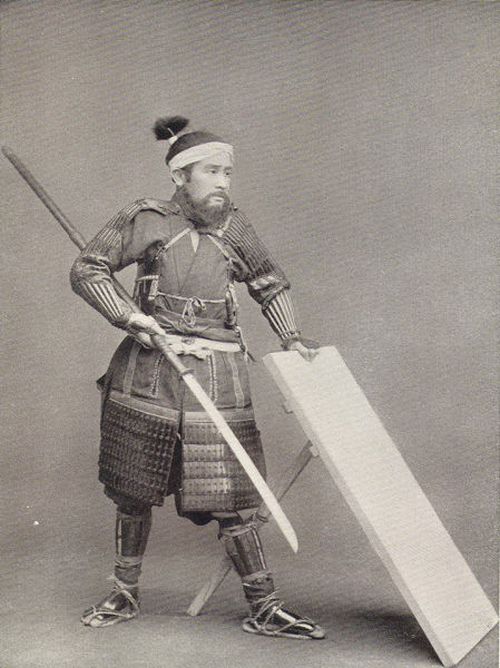|
|
History: Samurai Portrait
|
The terms bushi and samurai became synonymous near the end of the 12th century, according to William Scott Wilson in his book Ideals of the Samurai—Writings of Japanese Warriors. Wilson's book explores the origins of the word warrior in Japanese history as well as the kanji used to represent the word.
"Breaking down the character bu (武) reveals the radical (止), meaning "to stop," and an abbreviation of the radical (戈 ) "spear." The Shuo Wen, an early Chinese dictionary, gives this definition: "Bu consists of subduing the weapon and therefore stopping the spear." The Tso Chuan, another early Chinese source, goes further:
Bu consists of bun (文), literature or letters (and generally the arts of peace), stopping the spear. Bu prohibits violence and subdues weapons ... it puts the people at peace, and harmonizes the masses.
The radical shi (士) on the other hand seems to have originally meant a person who performs some function or who has the ability in some field. Early in Chinese history it came to define the upper class of society, and in the Book of Han this definition is given :
|
|









